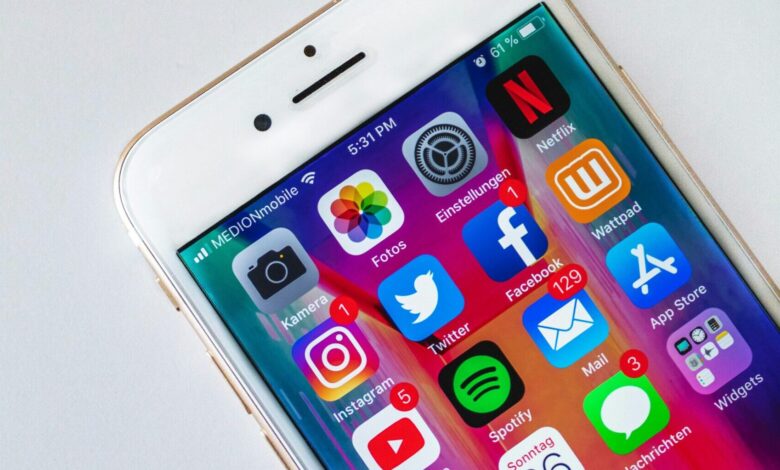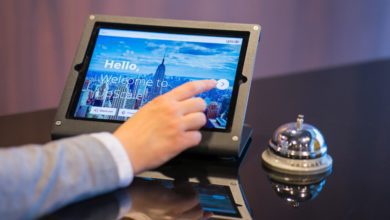Steps to social media marketing for hotels
In the digital age, social media has become an indispensable tool for hoteliers to connect with their audience, increase brand visibility, and drive bookings

Hotel marketing has come a long way, with the majority of holidaymakers – domestically and abroad – using the internet and their social media accounts to research and choose their next vacations.
In fact, TripAdvisor found that hotels with better content strategy, branding, and more images and videos tended to outperform those with less visual elements and branding in 2023.
Of all the hotel profiles on TripAdvisor, those with the most property images and videos saw a 138% spike in engagement and were a further 225% more likely to receive a booking inquiry.
At the same time, search engine rankings and digital advertising may also play a large part in how a hotel is gazed upon by a new clientele; online bookings made up almost 60% of all hotel bookings in 2023.
Marketing might come across as a daunting task for a single hotelier, particularly if they think they must hire a whole other team of professionals to handle this aspect of gaining business. However, the internet – and by extension social media – can be an inexpensive way to tell prospective guests that you are open and the hotel of their dreams.
Here are some tips to help you get started:
Define your goals
Start by identifying specific, measurable goals that align with your business objectives; are you looking to increase direct bookings by a certain percentage? Do you want to boost off-peak season occupancy rates? Are you aiming to build brand recognition in a new market? Clarifying your goals will help you tailor your social media strategy accordingly.
Know your audience
Conduct thorough research to understand the demographics, preferences, and behaviours of your target audience. Make sure to utilise both internal data – such as guest profiles and booking histories – and external research (such as industry reports and social media insights) to create detailed buyer personas. This will enable you to craft content that resonates with your audience’s interests and motivations.
Each social media platform offers something different
Different social media platforms cater to different demographics and interests, so make sure you choose the right one. For instance, Instagram is ideal for visually showcasing your hotel’s amenities and experiences, while Twitter can be used for real-time updates and customer service. Evaluate where your target audience spends their time online and prioritise those platforms for your marketing efforts.
Social media’s impact was also comparable on brand discovery, as 55% of consumers liked a hotel’s page on Facebook in order to receive more information about the property.
Many business owners prefer Instagram as the one, multitasking channel, as it can be used at each stage of the guest journey, from inspiration and research, through to on-property experience and post-stay sharing. According to marketing specialists, it is best suited to supporting the AIDA (Awareness, Interest, Desire and Action) model of marketing.
Facebook is also a good place to start showing off your hotel as 76% of people posted their vacation photos on this social media platform during 2023.
Create compelling content
Perhaps five years ago a hotelier may have had to invest in high-quality equipment to get the right professional looking photography and videography that highlights their property’s architecture, interiors, amenities, and surrounding attractions – but not anymore; smartphones are more than capable of taking wonderful photos for promotional purposes.
The emphasis on ‘quality’ cannot be overstated, as quality over quantity wins in this situation. TripAdvisor also found that hotels with a good range of high-quality photos on their websites increased the conversion rates by 15% in 2023.
What’s more, websites with videos were found to be 53 times more likely to appear on the first page of Google search results when compared to websites with no videos.
Once you have this content, craft engaging captions that tell a story and evoke emotions, making potential guests envision themselves staying at your hotel.
Utilise user-generated content
Encourage guests to share their experiences on social media by creating branded hashtags and incentivising participation through contests or giveaways. After they have talked positively about your hotel on their social media, be sure to repost this user-generated content on your own channels to showcase authentic guest perspectives and foster a sense of community. That said, always seek permission before reposting and give credit to the original creators.
Some 40% of hotel guests are likely to write a review after a positive experience, while 48% of guests would do the same after a negative experience, according to TripAdvisor.
Engage with your audience
Monitor your social media channels regularly and respond promptly to comments, messages, and reviews. You should personalise your responses to show genuine appreciation for feedback and address any concerns or inquiries in a timely manner. Building rapport with your audience can enhance brand loyalty and encourage positive word-of-mouth recommendations.
Leverage influencer partnerships
If your budget allows, identify influencers or micro-influencers whose values and aesthetic align with your brand, and initiate a collaboration with them to create authentic content that showcases your hotel in a compelling light. This route means you will need to negotiate partnerships that offer mutual benefits, whether it’s sponsored stays, affiliate promotions, or exclusive experiences for their followers.
The first thing to establish is relevance to your brand and demographic so that you engage with your target audience. Their followers are your potential customers, and it is important that they have similar tastes and expectations to your typical guest.
Optimise for search engines
Integrate relevant keywords, location tags, and geo-targeted hashtags into your social media posts to improve organic discoverability. Likewise, ensure that your profiles are also optimised with accurate business information, including your hotel’s name, address, phone number, and website URL. Consistent NAP (name, address and phone number) information across all platforms can boost your visibility in local search results.
Stay consistent
Once you have found something that works for you, it is advantageous to maintain a consistent brand voice and aesthetic across all your social media channels to reinforce brand identity and recognition.
In addition, develop a content calendar that outlines your posting schedule and themes in advance, but remain flexible to capitalise on timely opportunities or trends. Consistency in posting frequency and content quality will keep your audience engaged and eager for more.
Remember: success in social media marketing requires patience, persistence, and a genuine commitment to delivering value to your guests.









